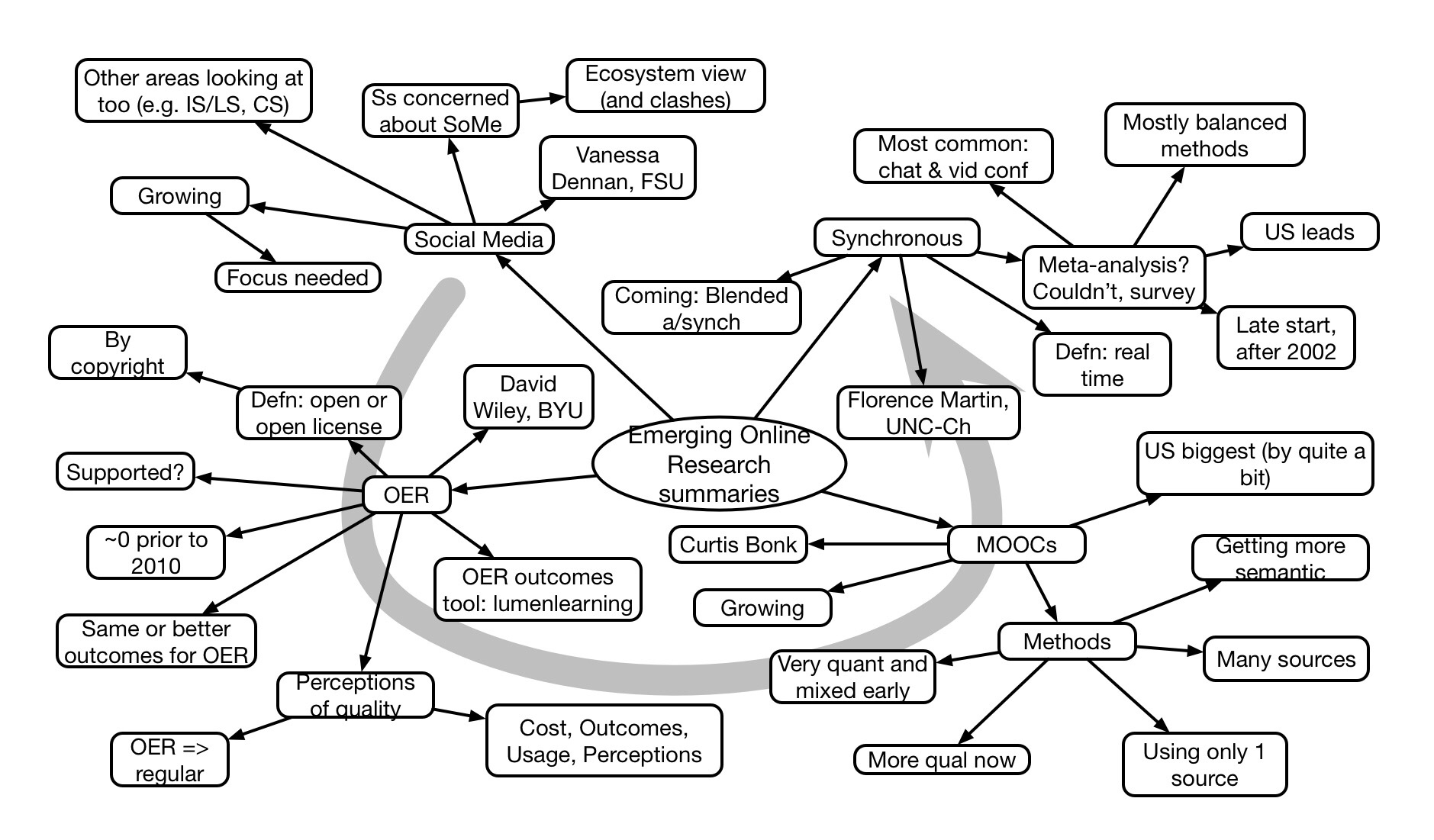At AECT18, I dropped in on a session summarizing research on emerging technologies for online learning. There were experts in each area, so names like Vanessa Dennan on social media, Curt Bonk in MOOCs, Florence Martin on synchronous Learning, and David Wiley on Open Education Research. And I apparently missed the nuances in the description, it was more meta-research, e.g. research on the research! There were some interesting insights, but I cheekily pulled more (they were offering chocolates for questions anyway).
So, in addition to all the research on research, David Wiley presented some outcome findings for OERs. Specifically, OERs are at least as good as traditional copyrighted materials. Later he gave a more complex explanation why (e.g. everyone has no reason not to have access), but this is a worthwhile finding.
I pushed further on both social media and synchronous learning for some take-homes (Curt didn’t take the bait ;).
Vanessa had talked about how the different social media platforms people use (most have more than one) create conflicts when being impacted by the learning ones. She recommended being sensitive to this, and don’t assume any specifics. She also recommended only using social media for learner-centered reasons (I’d amend: for learning-centered reasons).
Florence shared that synchronous tools shouldn’t be required in asynchronous learning environments, and only to use for optional activities. Such activities would include Q/A sessions and office hours. She, in conjunction with her student, also talked about the value of doing group work this way.
It was valuable, and I was grateful to them for organizing this session.

Hi Clark
Why do you like learning centred more than learner centred? It’s a conversation we’ve been having, and I’m not really committed either way yet – would like to hear your thinking.
Gerrit, ah, interesting. I think we can go wrong with ‘learner-centered’. It could be doing things like ‘learning styles’ or other techniques that try to cater to the learner. We (should) know that the best adaptation is to the learning outcome. So by focusing on ‘learning’ rather than ‘learner’, I believe we will have the best impact. (And, I think, by doing the best job of the learning, we indirectly are also doing the best thing for the learner.) Thanks for asking!